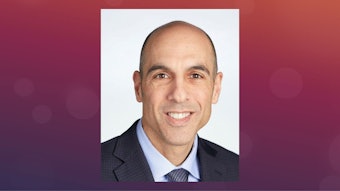Thinning the blood
Many questions, controversies and concerns surround the use of anticoagulants.

Anticoagulants come with a lot of challenges and questions. It’s important for hospitalists to know how to find the right balance in using them. Undertreatment can lead to strokes and blood clots in the legs or lungs. Overtreatment can lead to patients bleeding to death.
Anticoagulants can provide hospitalists with some of the most head-scratching challenges they will face, according to Scott Kaatz, DO, MSc, FACP, SFHM, clinical professor of medicine at Michigan State University College of Human Medicine and Wayne State University School of Medicine.
“A lot of times, there really isn’t one right answer. As you’re trying to make decisions, not having that true, concrete right answer is one of the hardest things we do as physicians,” he said.
Examples of these tough scenarios include whether or not you should start an anticoagulant when you come across atrial fibrillation in a patient who is admitted to the hospital for a different reason or knowing whether to use warfarin or direct oral anticoagulants (DOAC) in patients with antiphospholipid antibody related venous thromboembolism.
Dr. Kaatz will discuss real-world cases involving these decisions in Sunday’s session, “Challenging Anticoagulation Scenarios: How to Have Smooth Sailing Through Choppy Waters.”
DOAC in particular, Dr. Kaatz said, can be difficult to use when patients have obesity or are on dialysis. Another potential scenario that hospitalists might encounter is whether to use unfractionated heparin or low-molecular-weight heparin in patients with acute high-risk pulmonary embolism.
Dr. Kaatz said these cases illustrate why anticoagulants are one of the problematic medications for hospitalists to manage, and even something as seemingly simple as knowing which patients to use them on can be fraught with questions.
“These are one of those medications where it’s a very difficult balance to know not only which patient gets treated, but what type of blood thinner and what dose of blood thinner to use,” he said. “All in all, blood thinners are one of the trickier classes of medicine to manage.”
Although hospitalists may not be the only specialty that deals with anticoagulants, Dr. Kaatz said they are one of the more common treatments a hospitalist will have to administer.
“There really is no one specialty that maybe owns all of this,” he said. “You know who to go to when you break your hip, but there are lots of specialties that take care of patients with the diseases that need blood thinners. The hospitalist, however, incorporates all of those.”
Visit SHM Meeting News Central for more coverage.











